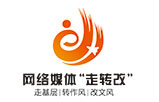Chinese lawmakers discuss report on SOE reforms
(Xinhua) Updated: 2012-10-26 10:41BEIJING -- State-owned enterprise currently submit 5 to 15 percent of state equity income to the government, senior economic officials said Thursday.
SOEs operating in the natural resources sector hand over 15 percent of state equity income, while other SOEs give 10 percent, with the exception of the 5 percent paid by military-industrial and high-tech SOEs, senior officials from the Ministry of Finance and the State-Owned Assets Supervision and Administration Commission said at the bi-monthly session of the Standing Committee of the National People's Congress.
Tobacco companies submit 20 percent of state equity income to the government, they added.
The government will further improve the budget system for State-owned enterprises and the management of state assets, the officials said.
On Thursday afternoon, lawmakers held panel discussions on a report on State-owned enterprise reforms delivered on Wednesday by Wang Yong, SASAC's director.
SASAC will encourage State-owned companies to publish social responsibility reports and invite the public to supervise their exercise of social duties, the officials said.
SASAC will urge companies to exercise their social duties in daily operations and incorporate them into company strategies. It will also set up an evaluation system for their performance in this area, they said.
According to Wang's report, State-owned enterprises, excluding financial institutions, reported revenues of 39.25 trillion yuan, accounting for 35 percent of total industrial and business revenues, as well as profits of 2.58 trillion yuan, accounting for 43 percent of the total, in 2011.
China has endeavored to reform its bulky State-owned enterprises since it introduced its market economy in the late 1970s.
So far, more than 90 percent of State-owned enterprises have become corporations and some of them have been restructured to become shareholding companies, according to Wang's report.
However, several flagship State-owned enterprises have been slow to transform into corporations.
The government will push these enterprises to speed up restructuring and improve corporate governance, SASAC officials said at the panel discussion.
- Australia to feature at China's biggest trade expo
- US brands set their sights on Chinese market
- Chinese investors continue to focus on gateway markets in 2016
- ChinaCache launches CHN-IX data center to empower internet community
- Software copyright registrations soar in China
- China Economic Information Service formally established
- SAIC Motor brings UK's LDV brand back to life
- Canadian tourism industry focuses on growing Chinese market

















